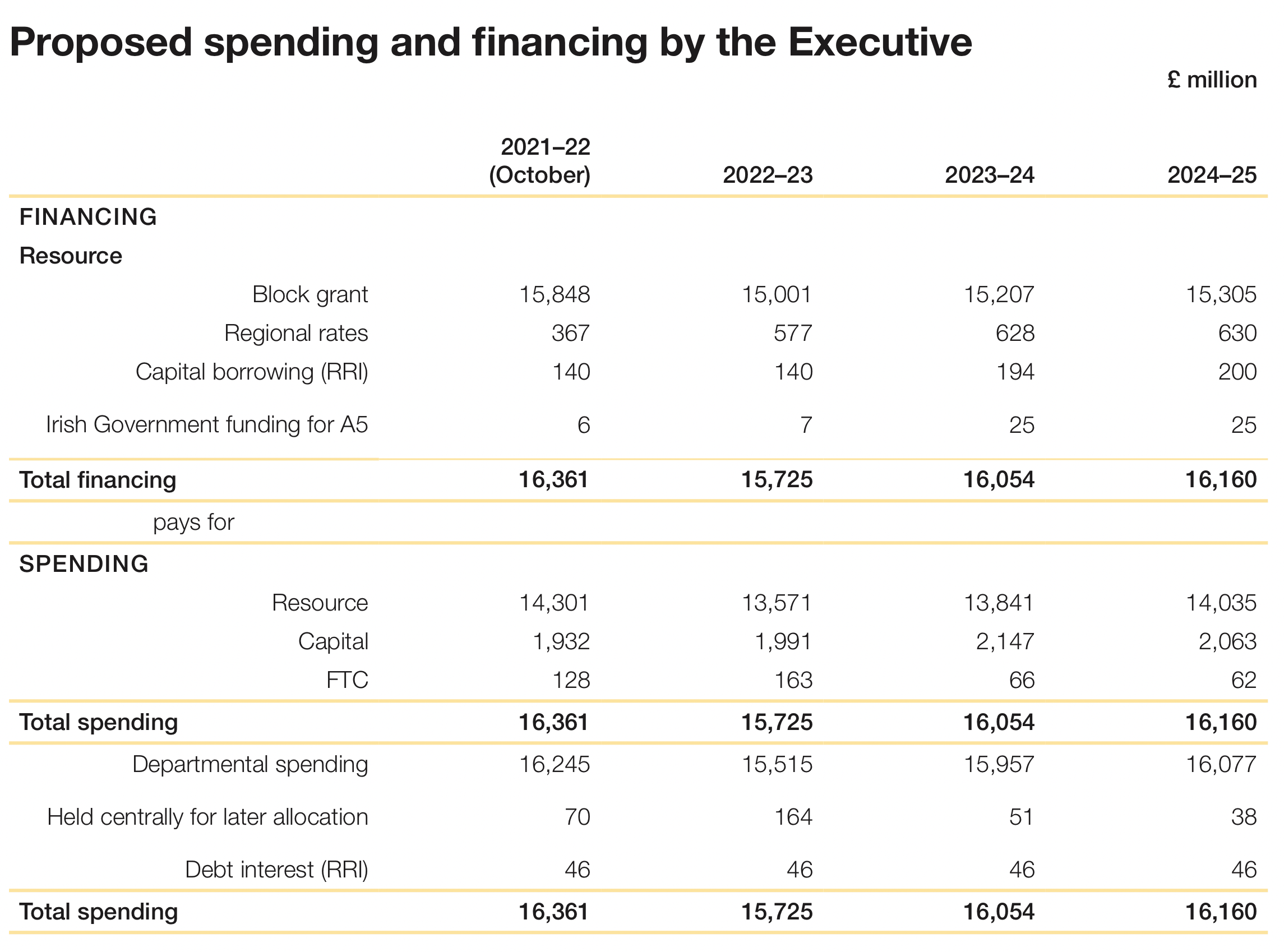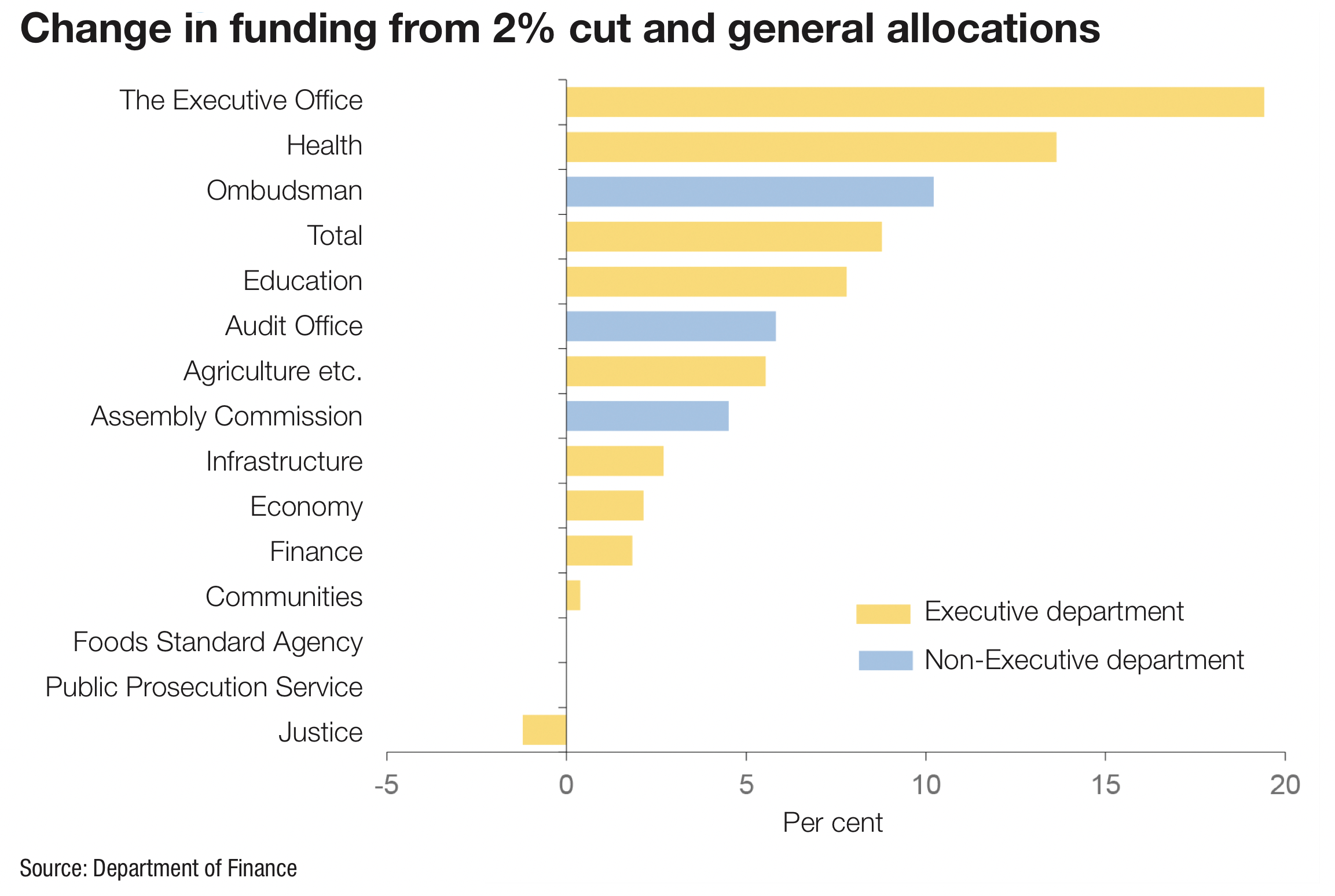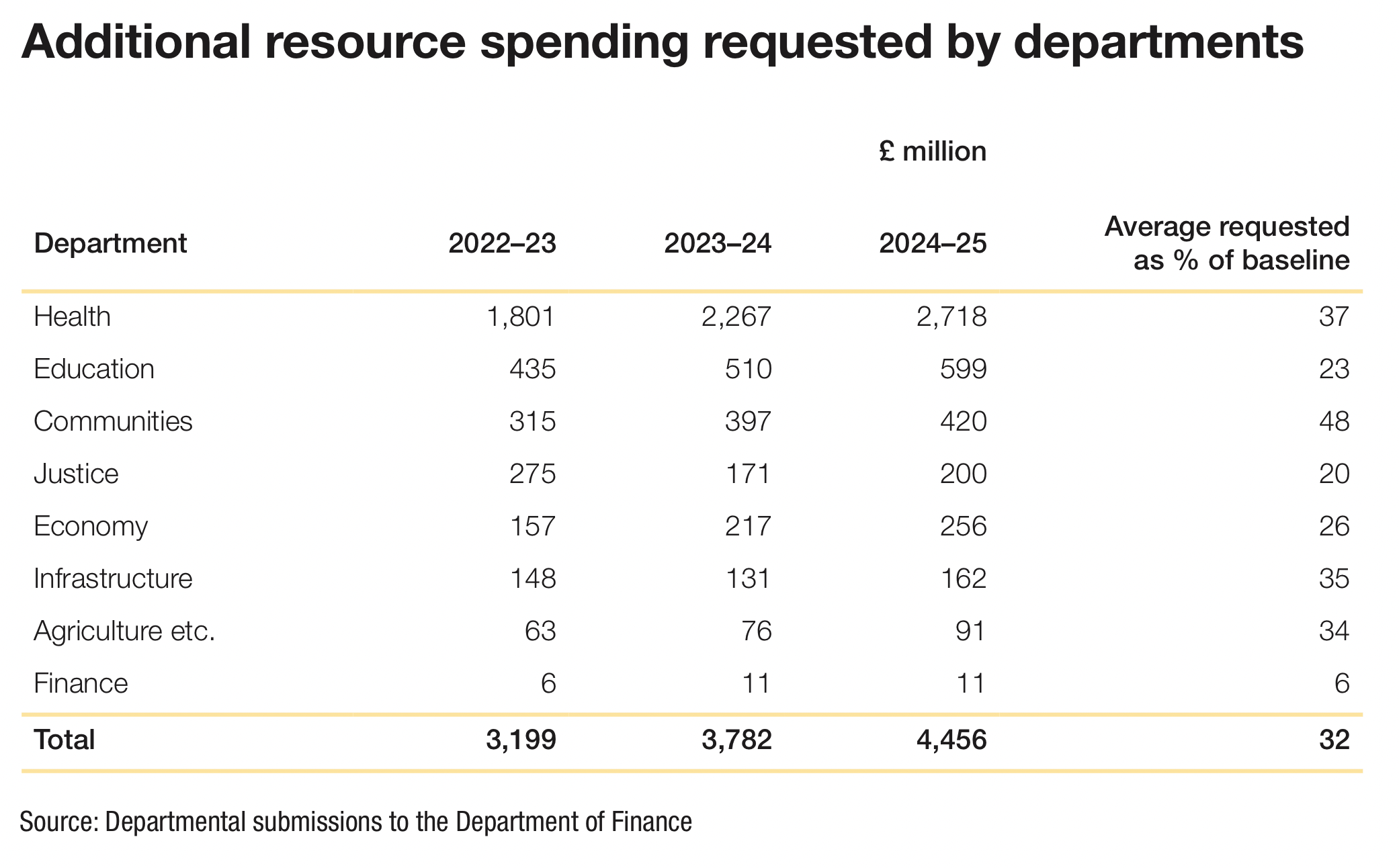Budget proposals create ‘relative winners and losers’

Northern Ireland’s new fiscal watchdog has criticised the lack of evidence of strategic priority-setting beyond health in the Department of Finance’s Draft Budget published for consultation at the end of 2021.
Although the Executive failed to agree a Draft Budget before the end of 2021, agreement was reached to publish Finance Minister Conor Murphy MLA’s proposals as a basis for consultation.
Published on 13 December 2021, the Draft Budget, in contrast to the preceding seven successive single-year budgets, set out potential multi-annual spending allocations for each of the Executive’s departments for 2022/23 until 2024/25.
In his 2021 Autumn Budget and Spending Review, UK Chancellor Rishi Sunak MP outlined an allocation which he described as the largest annual funding settlement for devolved governments since 1998.
However, an extra £1.6 billion per year for public services in Northern Ireland outlined by Sunak was challenged by Murphy, who insisted that the reality was of a “marginal real terms increase” of an additional £1.9 billion over three years, something he described as “nowhere near enough”.
In his Draft Budget proposals, the Finance Minister set out his plans to increase capital borrowing, freeze regional rates and increase departmental spending, particularly in health.
Prior to the Draft Budget proposals, the Executive had agreed to prioritise health and wellbeing while recovering from the pandemic and the Department of Finance has acknowledged this by proposing to increase the allocation to health. The allocation to health is 10 per cent higher in 2024/25, in real terms, adjusting for inflation, than the Department of Finance’s baseline figure. It means that health, in 2024/25, has been allocated 51 per cent of the Executive’s almost £14 billion total resource spending. By comparison, education is 18 per cent and justice is 8 per cent.
In order to facilitate the increased spend in health, the Minister’s proposals necessitate a 2 per cent cut from most other departments. The Department of Finance applied a two per cent cut across almost all departments, but then allocated additional funding arising from an increase in the block grant.
Following the increased block grant allocation, departments will not see a reduction in their baseline allocation, but will be 2 per cent below what could have been expected without the diversion to health.
The Fiscal Council says that it is satisfied the proposals “balance” the Budget, as required, but highlight a lack of evidence of strategic priority-setting beyond health and the absence of concrete proposals for consultation in areas such as efficiencies, charging and the halting of unnecessary services.
“Budget resource and capital plans are still not presented alongside a comparable set of outturn data for recent years or an up-to-date forecast for the current year. And no explanation is provided for the distribution of general allocations to departments in the resource budget.”
Chair of the Fiscal Council, Robert Chote says that while the approach “sounds even-handed”, the proposed distribution of the increased block grant “creates relative winners and losers” among the departments, adding: “There is little explanation of the choices made.”
The assessment of the proposed Budget by the Fiscal Council describes it is “regrettable” that the Executive could not publish its draft Investment Strategy in time to inform to capital spending proposals.
“Looking beyond the election, it is also essential that the incoming Executive establishes a close link between its budget allocations and the Programme for Government that it will be required by legislation to agree,” says Chote.
Publishing the Draft Budget, the Finance Minister acknowledged that the 10 per cent uplift for health by the end of the budget period would create challenges.
“The additional investment in health inevitably creates challenges for other public services. This Draft Budget therefore underlines our commitment to prioritise health,” stated Murphy.
The public consultation on the Draft Budget intends to run until 7 March 2022. However, following the resignation of First Minister Paul Givan MLA, failure to reform an Executive before the end of the current mandate could eliminate any chance of a multi-year budget agreement.








